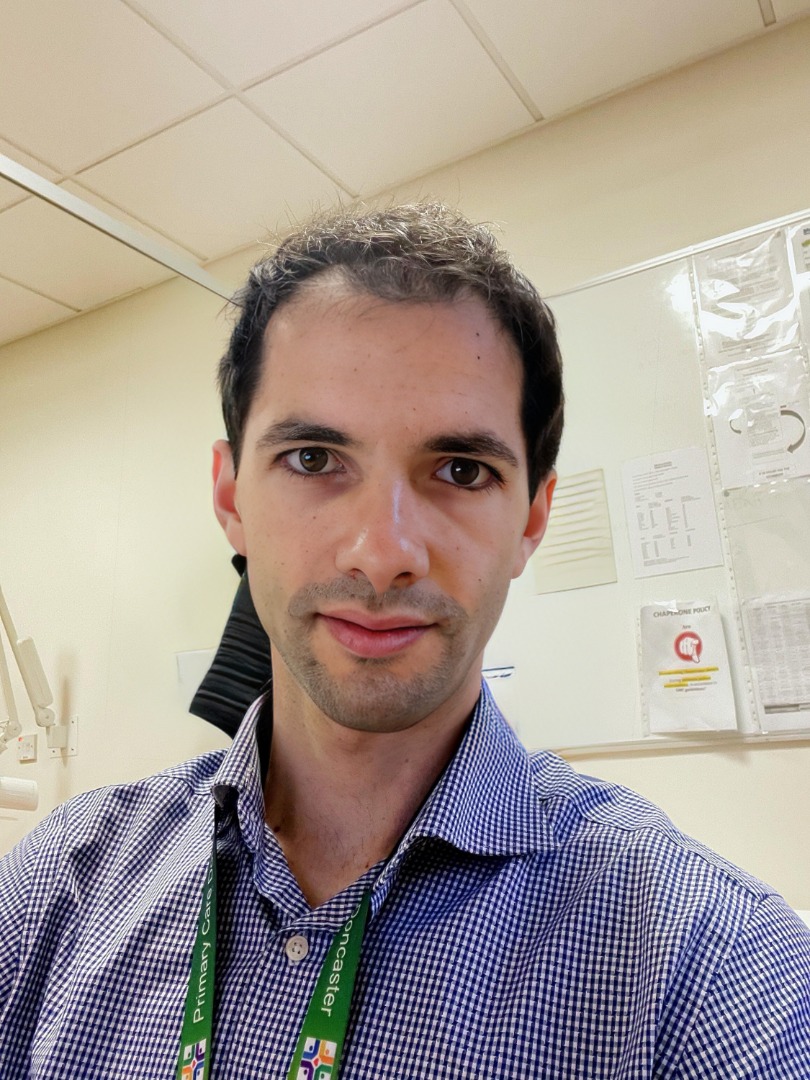
Jose M San-Roman-Sirvent
International podiatrist
Case study
José M San-Roman-Sirvent: International podiatrist
José is an international podiatrist from Spain who gained BSc (Hons) Podiatry in the UK. He has extended his scope through Podiatric Surgery theory training and is now a First Contact Podiatrist (FCP) in primary care using the skills gained through his Masters degree and clinical experience.
Podiatry career in the UK
I began my career in 2015 after graduating with a BSc in Podiatry and working at an NHS trust. I later pursued an MSc in the Theory of Podiatric Surgery, which encouraged me to seek shadowing opportunities at local surgical units. During this time, I worked as an honorary staff podiatrist for the local podiatric surgery team for six months, honing my skills and observing clinical duties in both outpatient and theatre sessions. I continued to seek shadowing opportunities, which proved valuable in observing different skill sets among podiatric surgeons, consultants, and members of the multidisciplinary team.
Skills gained through advancing practice
I gained many skills from the MSc in Theory of Podiatric Surgery, which equipped me with the various skills needed for advanced practice. I believe it's not only valuable as a career pathway in podiatric surgery but also helps anyone wanting to expand their knowledge and skill set or pursue a career as an FCP or Advanced Clinical Practitioner (ACP).
Skills and knowledge from MSc for advancing practice:
- The Anatomy for Podiatrists module helped me appreciate the importance of understanding the structure and function of the foot and ankle. Not only was I exposed to cadaver dissection in this module, but I have been fortunate to have attended several other cadaver dissection events (mainly through my pursuit of the podiatric surgery career route). Gaining such a detailed understanding of the anatomy of the foot has helped me perform more accurate clinical assessments which in turn helps me properly diagnose and treat foot-related problems.
- The Podiatric Mechanics module provided me with knowledge in biomechanical assessment, which is helpful in first-contact practitioner roles in primary care as a large part of the caseload is MSK. Foot biomechanics is closely linked with podiatric surgery as you need to understand normal and abnormal foot function, so one naturally gains valuable knowledge and skills in MSK through continued exposure to podiatric surgery training.
- Research Project: This module provided me with skills such as research design, data collection and analysis. Through conducting a research project, I also gained skills in formulating research questions, carrying out a literature search, and critically appraising the literature (strengths and limitations).
How my current role benefits from my skillset
In my current role as an FCP, it's important to work with other professionals and departments and arrange referrals and investigations to ensure appropriate interventions.
Thus, I feel I gained a lot of these skills through other modules of the MSc, such as:
- Diagnostic Investigations and Imaging, which helped me gain an understanding of the principles of diagnostic investigations, including laboratory and radiological investigations. This is essential whether you work in secondary care or primary care since pathology requests/bloods are part of the day-to-day work. Through these modules, I also have gained skills in interpreting imaging, mainly x-rays, which is useful for any advanced clinical practitioner role.
- Medicine and Pathology: this module provided me with a broad understanding of the pathophysiology of various medical conditions that can affect the lower limbs and feet. This module prepared me with the necessary knowledge and skills to identify red flags (Charcot foot, diabetic foot ulcer or ischaemic complications, DVT, etc.) which is key to any FCP role as patients are not 'cherry-picked' and is thus essential to be able to screen for red flags.
Overall, the MSc degree and shadowing experiences exposed me to various clinical scenarios and presentations and equipped me with a diverse set of skills. Carrying out detailed clinical assessments, diagnosing and treating foot-related issues, and identifying and managing medical conditions affecting the lower limbs and feet. Being in the UK has enabled me to progress in these areas. I feel this experience and level of training have been instrumental in enabling me to secure a job and succeed in my role as a First Contact Podiatrist.
